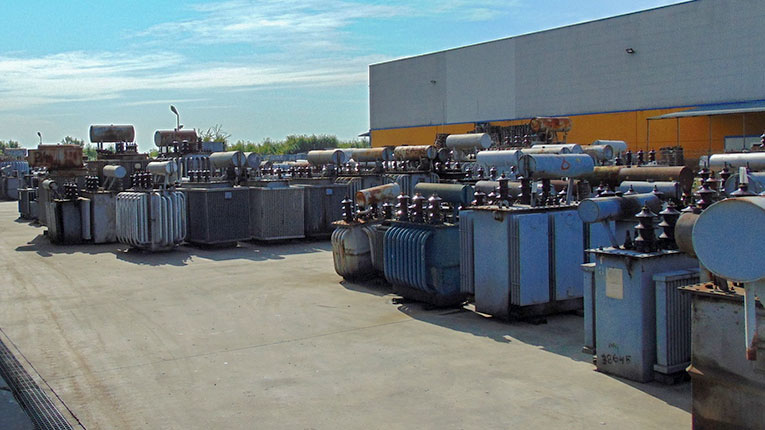E-Distribuţie companies, part of the Enel group, sent to recycling over 6,000 tons of equipment waste resulting from the modernization and maintenance works on the electricity grid in the period 2020 – 2021, representing waste from transformers, electricity cables, industrial batteries, meters or used oil. From the beginning of the year until now, the quantity sent to recycling exceeds 2,000 tons.
The initiative to recycle the equipment replaced following the modernization of the electricity grid is part of the company’s sustainability and sustainable development strategy, which supports the transition to a circular economy. In the last five years, the group’s three distribution companies have recycled equipment waste totalling 15,200 tons. Of these, in the last 18 months, over 95% of the recycled volumes have returned to the economy in the form of ferrous, non-ferrous metals, plastic, wood, glass, etc.
The total revenues obtained from the recycling of equipment were about 850,000 euros in 2020 and over 300,000 euros in the first half of this year.
“For Enel, sustainability is part of the business strategy, and one of the pillars of the circular economy is maintaining the value of a product through revaluation. Our commitment to the circular economy began a few years ago, through sustained efforts both to limit the amount of waste generated and to increase the waste recovered,” said Monica Hodor, CEO of E-Distributie companies.
“We have managed to achieve significant energy savings of over 84,000 GJ in 2020, due to the maintenance and modernization of transformer stations and substations, and to the replacement of equipment and transformer stations. We continue to focus on ecological, social and economic sustainability to identify, together with our partners, circular and long-term solutions that can turn the waste into development opportunities.”
The Enel Group is in the process of transitioning to a sustainable business model by developing renewable energy sources and adopting the principles of the circular economy as a strategic engine. E-Distributie companies have integrated these principles in their activity, so that all waste sent to recycling – transformer stations, electricity cables, iron, industrial batteries, meters, used oil – reaches authorized contractors, who capitalize on each piece of equipment waste.
The electricity grid operated by the three E-Distributie companies has over 131,000 kilometres, 286 transformer stations and 23,575 substations. In 2020, they distributed over 15.3 TWh of electricity, through high, medium and low voltage power lines.
